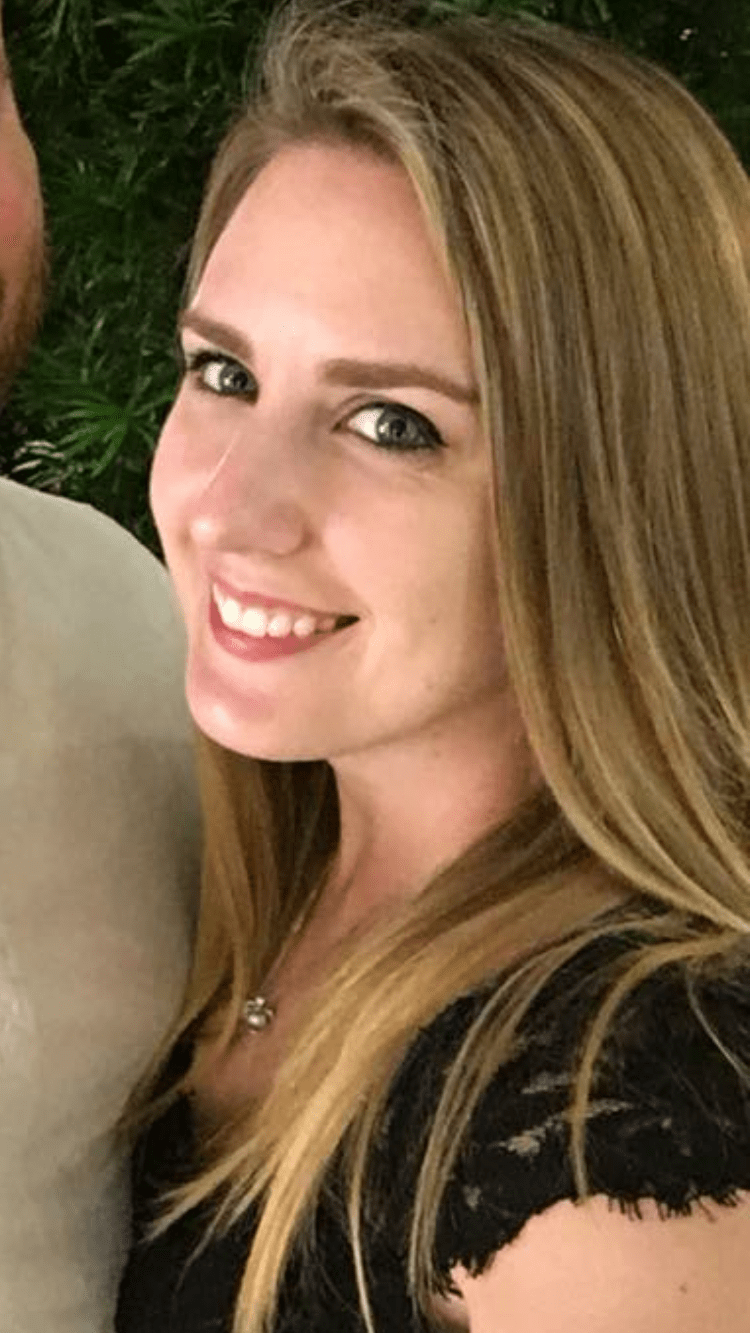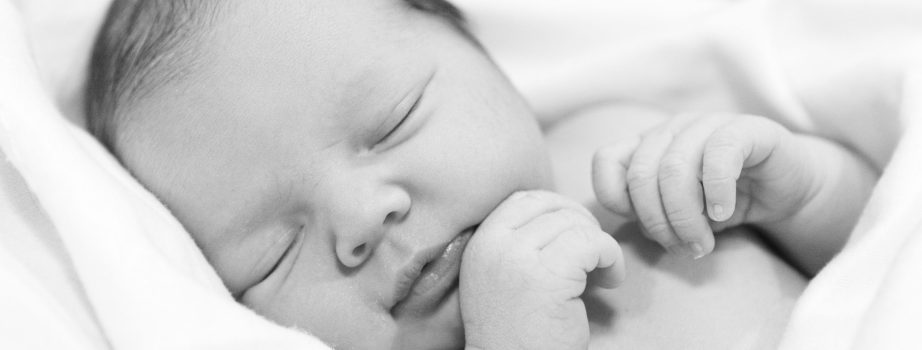I stumbled across Becca VonLangen’s blog, Hear Our Silence, while searching for hearing loss-related Instagram accounts (she has a great one). Becca (like my daughter) was born profoundly deaf. She relied on hearing aids until she was eight-years-old when she received her first cochlear implant. At 17, she was implanted on the other side. Today, she is 26 years old. I was interested in hearing about how hearing loss has or hasn’t shaped her identity at this stage in her life.

Does anyone else in your family have hearing loss? How did your parents approach your hearing loss?
No one in my family has hearing loss. I was lucky in the way of having the love and support from my parents and my brother. Importantly, they did not treat me differently. My parents enrolled me in a preschool for the deaf as a toddler, which is where I learned how to talk. When I got my hearing aids, my parents would talk to me about everything, from the weather to putting away dishes. As I got older, my parents gave me more control over my hearing. They allowed me to take ownership over my implants and my classroom needs. They also taught me the importance of self-advocating.
Did you do speech therapy growing up? If so, for how long?
I went to a preschool for the deaf that focused on oral education. At six, I started mainstream kindergarten. Throughout elementary school, I worked with a special education teacher, but I hated being pulled from my classes so I stopped going without permission from anyone. In middle school, I met with an itinerant teacher before school started each day until seventh grade. I should add that I received more intense speech therapy following the activation of each of my cochlear implants. When I was eight-years-old, I worked with a professional speech therapist, and at 17 I worked with my mom (who had experience as a teacher’s assistant at my preschool).
I attended SUNY Oneonta for college, where I graduated with a major in anthropology and a minor in Earth science.
Do you think you hear differently from friends or family? If so, how?
I definitely do. I notice my friends and family can hear different pitches than I can and can pick up sounds from a distance easier. I do have an advantage with my telecoil mode, however! Using it blocks outside noise on the phone, which is great when I am at work. I end up handling the most office phone calls since I can hear people the easiest on the phone.
What was college and dorm-life like for you?
It wasn’t as tricky as I thought it would be. I let everyone on my floor know I was deaf and they helped me out during fire alarms, especially if I was in the shower when an alarm went off (which happened!).
Did you take advantage of any hearing-loss related accommodations while in college? What helped you be successful?
I used a few accommodations in college. The first floor of the dorms were equipped with strobe light fire alarms so I was able to request those rooms for housing. That made moving in and out a lot easier! For certain classes, I took advantage of having a note taker. I used a note taker for a physics class that had a professor with a thick accent; for a literature class where the professor spoke very quickly; and for a history class which was pure lecture – no power point. Reflecting back, I do wish I had utilized them a bit more for certain classes where I struggled, but wouldn’t admit to it.
I also found open communication with my professors to be helpful. I kept in touch with professors throughout the semester and let them know if I felt I I was falling behind. I had a very rough sophomore year and learned how to advocate better my junior year, which helped me so much. I kept in better contact with my professors and in return I felt I knew the material better and my professors were willing to work with me because they knew I was trying.
What kind of work do you do currently?
I work as a veterinary technician in an emergency and referral hospital, mostly focusing on the dentistry and oral surgery department. I started off as a receptionist for that department and now I have been cross-trained as a technician in multiple departments to help out where needed. When in the dentistry department, I perform dental cleanings, radiographs of the mouth, some minor non-invasive procedures and I help the veterinarian with root canals, braces (to correct a painful mouth, not for cosmetic reasons) and even metal crowns for police canines!
Additionally, I help out at Summit Speech School, a preschool for the deaf, that teaches kids how to speak and hear (the same preschool I went to). Parents with young infants often approach me, hoping to know that their child is going to not just be okay with hearing, but also okay socially. I do think that their concerns have some merit. It’s hard to be different in today’s society and being deaf is something different. I have found that as long as you are proud of your hearing loss and don’t let it prevent you from doing what you want, the challenges are like any other kid growing up.
Have you faced any challenges socially?
I noticed social challenges when I went to college. I grew up in North New Jersey with the same friends who all knew how to adjust in social settings with me, but in college I had to train myself how to get around with strangers. Once I established a core group of friends, things got easier. House parties and bars were probably the toughest challenge due to the dark lighting and loud music. I stuck close with the people I went with for the most part. There was a bar in college I went to every time I went out and developed friendships with the bar and bouncer staff, so I felt more comfortable in that environment.
I am sure people did treat me differently more often than I realize, but I try to focus on the people that treat me the same. There are trends of what people do when they start to treat me differently. Sometimes people over exaggerate their lip movements, which actually makes it harder to understand. I’ve had people say “never mind” when I ask them to repeat themselves, which hurts. I deal with it by letting people know that what they are doing doesn’t help. I find that calling people out helps them to not only help me, but also furthers their awareness. Most people don’t realize what they are doing and apologize.
It’s clear from your blog and Instagram that you love to be active. Can you talk a bit about how you handle sports with CIs?
I grew up playing soccer in a travel league. At that time, I noticed I played best on the side closest to the coach, since I could hear him better there. I learned how to play using both of my feet instead of favoring one side like most players, which gave me an advantage. I also did ballet, jazz, hip hop, contemporary and modern dance most of my life (on top of color guard in high school), and I had to wear “huggies” to keep my CIs on my ears. I learned how to style my hair to keep magnets on my head, too (braids work best!)

What was it like to date with CIs?
Dating was normal for me. I didn’t think hard about relationships because everyone had different experiences and challenges, and my hearing loss was just another factor. My first real boyfriend was during my sophomore year of high school. I remember being shy about watching TV and movies with subtitles, so my mom mentioned it to his mom. The next time I went over, they had closed captions on the family TV. He asked me why I didn’t say something before and I couldn’t come up with a clear answer.
I noticed a pattern with relationships that followed. I would wait to bring up my deafness. I tried to do it in the most natural way possible, but it didn’t really work. For example, I met one boyfriend on vacation and told him I was deaf while we were swimming in the ocean! That’s not the best place to break that type of news!
Since then, I have been sure to be upfront about my deafness. I met my husband in line at Starbucks and my hearing loss came up in that first conversation, which made it easy! My husband is also the most interested in my hearing than anyone else I ever dated. He comes to audiologist appointments with me, he learned ASL and he learned how to care for and troubleshoot my CIs.
Ahhh…that is so romantic! 🙂 Do you sign?
I do not sign on a regular basis. I would like to, and I took classes in college. It is hard since no one around me signs, so I don’t get much opportunity to practice. My husband and I are learning together. He even surprised me during my wedding ceremony by signing our vows!
Okay. Love him! So why did you decide to start your blog, hearoursilence.weebly.com?
I noticed there was a lack of community with the young adult cochlear implant/hearing aid crowd. There were blogs out there for parents of deaf children and for older adults, but not many for young adults. I started to search social media for other sources and continued to find nothing. That was 2014. Today, the community has grown with other deaf activists my age. You can find them on Instagram, Twitter, etc., but the blogging world still holds a place in my heart.
Thank you, Becca! So grateful to you for sharing your experience!



